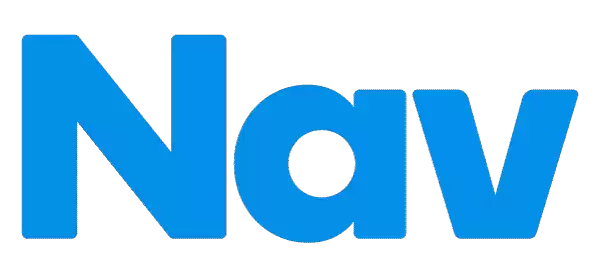When it comes to finding the right loan for your small business, personal needs, or mortgage, and understanding the different kinds of loans and what they bring to the table is key. Loans from private individuals and groups and those that are issued by banks are generally what small business owners are looking for.
Both private loans and bank loans have attractive benefits. However, these loans also have their share of downsides to keep in mind. Researching both types of loans is instrumental in picking the one most suitable for your particular small business needs.
The main difference between private lenders and bank loans is this: The main difference between getting a loan from a bank versus a private lender is that the private lender will generally accept riskier loan customers than a bank. However, the interest rates from private lenders tend to be higher than interest rates from banks.
What is a Private Lender?
Private loans are capital that private investors or lenders that lend out for investments. These lenders typically follow unorthodox qualifying rules and issue loans with more expensive terms because of the above-average risk they’re prepared to take on.
These loans are often awarded to entrepreneurs and small business owners who don’t qualify for standard bank loans. There are many reasons why small business owners might seek out private lending instead of a traditional bank loan. The PMLG provides a list of reasons why these loans are sought after, including:
- A need to make extensive repairs on a property to renovate it or “fix-and-flip.”
- The desire to find better loan-to-value rates than what banks normally grant.
- Require money for projects that are difficult for banks to fund, such as land or construction projects located in areas with higher-than-average default rates.
Related: The Best Hard Money Lenders
What is a Bank Lender?
Bank loans are capital issued and lent to businesses and individuals by banks or third parties to finance medium- to long-term business projects or assignments. With these loans, the bank sets a fixed period over which the loan must be repaid, along with the interest rate and amount of the repayments. All banks have access to federal funds, which has been at a relatively low rate of 0.25%.
While private lenders consider credit scores as a factor for issuing loans, banks use credit scores as the primary factor for making the decision to approve a loan or not.
Banks also require loan borrowers to have good credit with documented sources of income. More often than not nowadays, banks use automated underwriting software to make the final decision to approve or reject a loan application.
|
4.7
|
4.0
|
|
Loan Amounts: $1,000 - $10 million
|
Loan Amounts: $5,000 - $125,000
|
How do Private Lenders Work?
Private lenders provide just the same services as banks or credit unions. You obtain money to buy a home, make a purchase, consolidate debt, make house improvements, or any other purpose. Then you pay back the amount you borrowed in installments with interest to the lender. The lender makes money by doing so.
Can I Be a Private Lender?
Who can become a private lender? Anyone may be a private lender. If you have money to invest and want good returns (see below for the difference between commercial and private lending), private lending might be the answer.
Is a Private Lender Better than a Bank?
Banks are typically less expensive, but they're more difficult to work with and to get a loan approved. Private lenders are often more flexible and responsive, although they are also more costly.
Do Private Lenders Do Personal Loans?
Many forms of loans are possible with a private lender, but two of the most frequent are real estate loans, mortgage loans, business loanss, and personal loans. Because of quicker or less formal application processes, private lenders have faster approval times than banks or credit unions.
Private Lender vs Bank Loan Comparison
Banks are frequently more difficult to work with than private lenders. Banks are impacted by numerous state and federal rules as well as programs administered by governmental and quasi-governmental organizations such as Fannie Mae, Freddie Mac, the Veterans Administration, and the Department of Housing and Urban Development. These rules frequently limit a bank's lending opportunities while also defining acceptable credit profiles.
State and federal laws apply to both types of financing. Both types of lending, however, are far less highly controlled and more flexible in the sorts of loans they provide and who their clients are.
As a result, obtaining approval from a private lender is typically simpler than receiving it from a typical bank since private lenders can create each loan based on a set of predetermined standards, such as credit scores, loan to value ratios, and debt to income ratios.
Approval is usually a done via a program or computerized, and lenders have very little control. Private lenders generally take a more practical approach to problemsolving than Borrowers who rely on government-sponsored lenders face additional challenges.
Banks are also more likely to look at a borrower's financial history and credit by using easily traceable and documented sources of income, making it difficult for self-employed borrowers to secure bank loans.
Lenders will be more creative and energetic in qualifying income, and they may be ready to overlook background mistakes if you explain them.
Pros and Cons of Private Lenders
The following are the benefits and hazards of choosing private loans to finance small business projects:
Pros
- Loans can be originated faster than bank loans.
- They can be approved with fewer pieces of documentation than bank loans.
- Private lenders are more willing to accept different forms of collateral than what banks usually accept.
Cons
- Private lenders have higher costs for loans being issued, which is reflected in their loan rates.
- It’s more difficult for newer business owners to obtain large business loans, often with unfavorable terms, like higher interest rates or smaller amounts than under normal circumstances.
Pros and Cons of Bank Loans
Pros
- Due to the low cost of funds, banks don’t have to charge as much as private lenders to earn the spread needed to keep their businesses in operation.
- The interest paid on your bank loan is a tax-deductible expense, so long as it’s used for business-related reasons.
Cons
- Banks usually won’t lend to small business startups or businesses that aren’t very profitable or have low cash flow as they are deemed too high-risk.
- They don’t have much of an incentive to negotiate terms with the borrower, as banks have multiple ways to earn revenue, such as from collecting fees and investing the funds from their depositors in stocks and bonds.
- Banks are generally unable to lend to new or small, early-stage businesses due to restrictive regulations.
Conclusion
So, in the end, which type of loan is the best option for a small business owner? Ultimately, it depends on your credit score, borrower criteria, and funding timeline.
If your small business is in a tight bind for funding, you have a low credit score and you only need the funding temporarily, taking a private loan might be your best bet.










